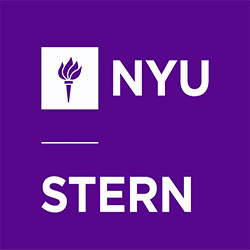As I prepared to start the Tech MBA program at NYU, I felt a wave of emotions: excitement, joy, eagerness, and a little anxiety…I read over the checklists, signed the necessary documents, set up my portals, and tried to prepare myself for a new chapter.
In addition to checking off the boxes on your “to do before business school” list, I recommend taking some time to turn inward to set yourself up for success. Here are a few tips:
Reflect on your why
Earning an MBA is an incredible opportunity to develop skills and build a network to take your career to new heights. However, there are plenty of ways to achieve your career goals. To get the most out of your business school experience, it is important to understand why you decided to apply and ultimately enroll in the program. Are you aiming to gain leadership skills, technical expertise, or to dive deep into a particular domain? Are you most interested in building a professional network? Are you hoping to start your own business and you’re looking for a co-founder and guidance for raising capital? There are many reasons why individuals go to business school and understanding your motivating force before the first day will help you make the most out of the experience.
Prioritize your goals
You might have multiple aspirations for what you want to achieve during your time at Stern. There are many opportunities to get involved with clubs, attend extracurricular activities, TA a class, attend networking and social events, etc. If you want to, you can fill up every hour of the day with something exciting. Business school is a great time to explore new things, but it is also important to prioritize your goals. Reflect on your why and write down what goals are most important to you. For example, your goals might be to hold a leadership position for a club and attend one speaker session per week. Your friend might prioritize working hard in a class so that she can TA the following semester. Someone else might prioritize landing an in-semester internship. Of course it is important to keep an open mind, but writing down your initial goals at the beginning of the year will help you stay on track.
Meet your classmates
If you live in NYC or plan to move here before the first day of orientation, you might want to meet some of your future classmates in person. Check out the Slack group and reach out to a few students. Our cohort met a handful times in the park or for dinner to get to know each other before orientation. While this is not necessary, having a few familiar faces on the first day of orientation won’t hurt!
Relax and savor the moment
You were accepted to a top business school. Business school is an exciting experience, but you worked hard to get to this moment. Take a minute to acknowledge your accomplishments and celebrate.

